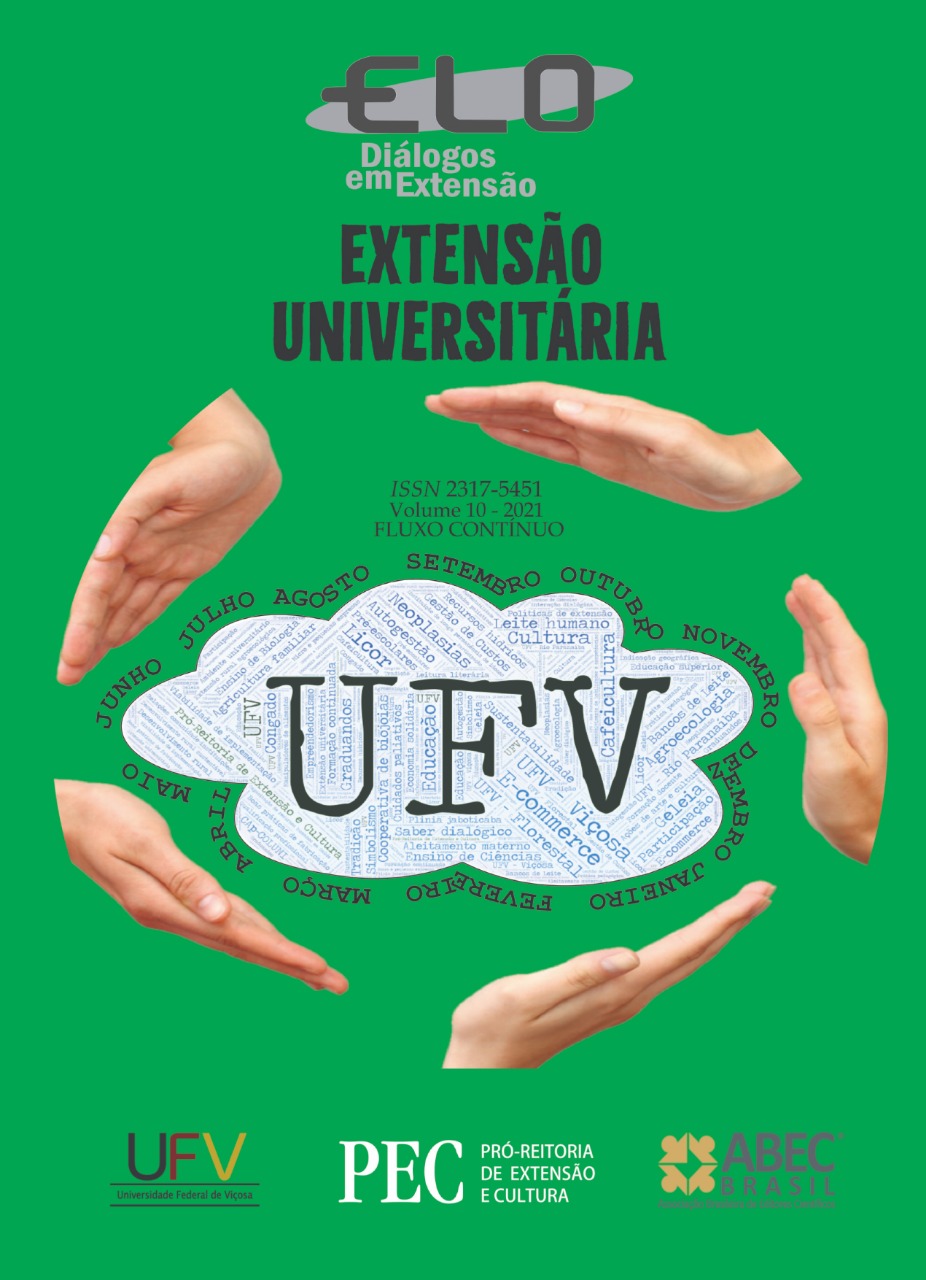Digital Inclusion for adults: Experience report
DOI:
https://doi.org/10.21284/elo.v10i.11869Keywords:
Keywords: Digital inclusion. Adults. Practical workshops. External community.Abstract
Abstract: This article presents the experience report of a digital inclusion project for adults. The main objective of the project was to promote digital inclusion for students, so that after insertion into the digital world they are able to interact with this new social paradigm, allowing them the possibility to feel proud as individuals and as professionals, thus contributing to a better social context, according to their training obtained during practical workshops. The project urged the inclusion of the specific attended public through educational and practical workshops, contributing to an approach of the external community with the Federal Institute of Santa Catarina - campus of Tubarão. At the end of the project it was concluded that the objectives were achieved. The participants comprised 30 people.
Downloads
References
ASSMANN, Hugo. A Metamorfose do aprender na sociedade da informação. Ciência da Informação. Brasília, 2000, v.29, n.2, p.7-15. Disponível em: <https://www.scielo.br/pdf/ci/v29n2/a02v29n2.pdf >. Acesso em: 19 Dez. 2017.
CENTRO REGIONAL DE ESTUDOS PARA O DESENVOLVIMENTO DA SOCIEDADE DA INFORMAÇÃO. TIC Domicílios 2016. São Paulo: Cetic.br, 2016. Disponível em: <http://www.cetic.br/pesquisa/domicilios/indicadores >. Acesso em: 19 Dez. 2017.
FREIRE, Paulo. Pedagogia da autonomia: saberes necessários à prática educativa. São Paulo: Paz e Terra, 1996.
FREIRE, Isa Maria. O desafio da inclusão digital. Transinformação, v. 16, n. 2, 9 ago.2012. Disponível em: <http://periodicos.puccampinas.edu.br/seer/index.php/transinfo/article/view/720 >. Acesso em: 19 Dez. 2017.
INSTITUTO FEDERAL DE EDUCAÇÃO, CIÊNCIA E TECNOLOGIA DE SANTA CATARINA (IFSC). Plano de Desenvolvimento Institucional, 2020. Disponível em: <https://www.ifsc.edu.br/documentos-norteadores>. Acesso em: 01 Abr. 2021.
LAZARTE, Leonardo. Ecologia cognitiva na sociedade da informação. Ciência da informação, Brasília, v.29, n.2, p.43-51, 2000. Disponível em: <https://www.scielo.br/pdf/ci/v29n2/a06v29n2>. Acesso em: 01 Abr. 2021.
THE ECONOMIST. The inclusive internet index: bridging digital divides, intelligence unit, 2017. Disponível em: <https://theinclusiveinternet.eiu.com/assets/external/downloads/3i-bridging-digital-divides.pdf >. Acesso em: 19 dez. 2017.
Downloads
Published
How to Cite
Issue
Section
License
Copyright (c) 2021 Revista ELO – Diálogos em Extensão

This work is licensed under a Creative Commons Attribution 4.0 International License.
Authors who publish in this journal agree to the following terms:
A. Authors grant the journal the right of first publication, with the work simultaneously licensed under the Creative Commons Attribution License which allows the sharing of work with acknowledgment of authorship and initial publication in this journal.
B. Authors are authorized to take additional contracts separately, for non-exclusive distribution of the version of the work published in this journal (e.g. publish in institutional repository or as a book chapter), with acknowledgment of authorship and initial publication in this journal.
C. The journal holds the right to make format, orthographic and grammatical changes in the article to ensure the language standards, respecting the author’s style as well.
D. The opinions expressed by the authors are of their exclusive responsibility.















